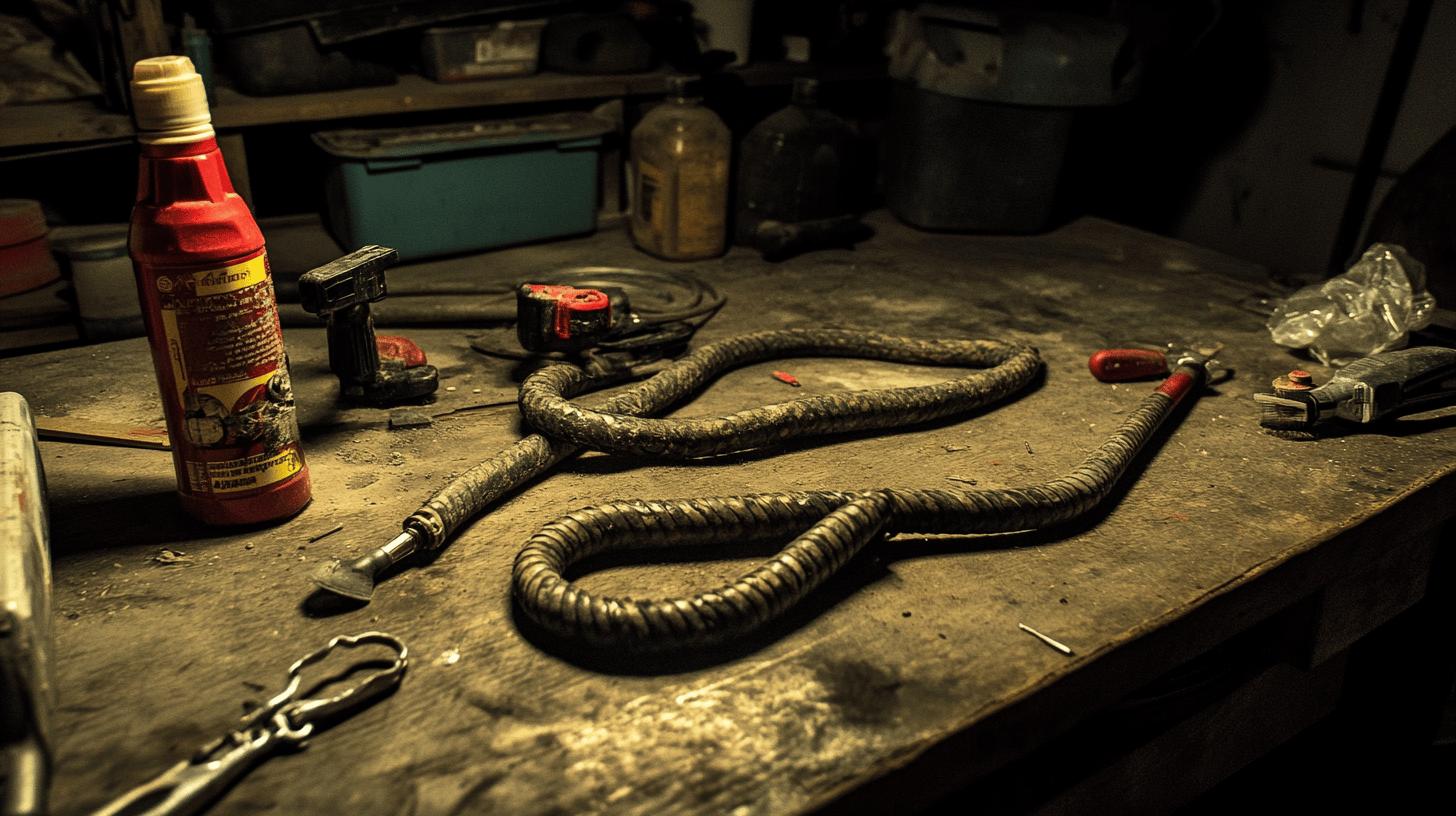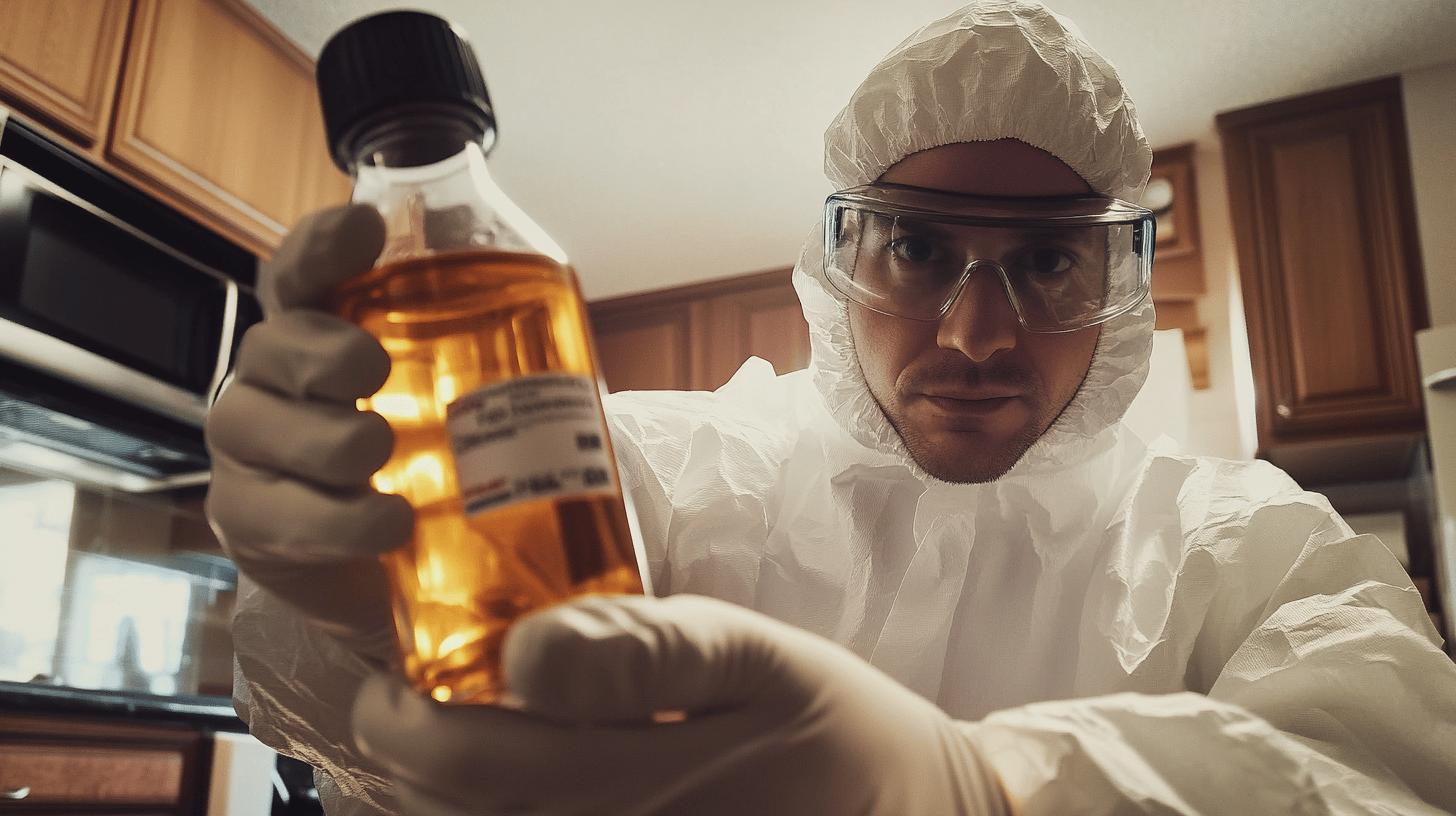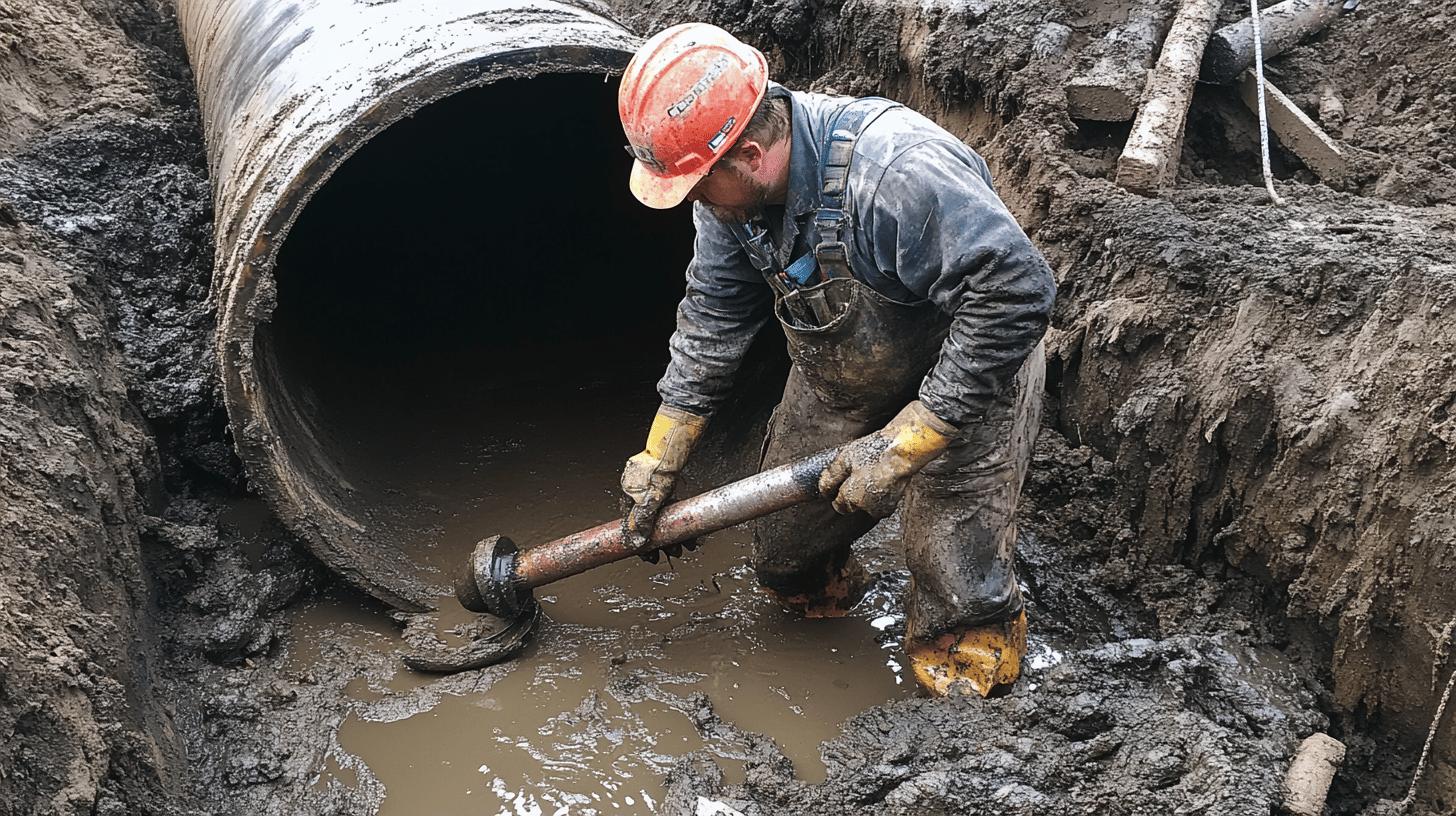TL;DR:
- DIY Blockage Removal Methods:
- Plunger
- Plumbing snake
- Vinegar and baking soda
- Clean P-trap
- Chemical drain cleaners
- Professional Methods:
- Plumbing augers
- Hydro jetting
- Tools:
- Plumbing snakes, augers for deep clogs
- Hydro jetting for thorough cleaning
- Chemical drain cleaners (use cautiously)
- Safety with Chemical Cleaners:
- Gloves, eyewear, ventilation
- Follow instructions, no mixing, keep away from kids/pets
- Prevention Tips:
- Avoid grease, limit toilet paper, discard waste properly, clean drains, schedule inspections.
- Professional Maintenance Benefits:
- Early issue detection, expert cleaning, prolonged plumbing lifespan.
Ever experienced the frustration of water pooling in your sink or shower with no visible debris? Blocked pipelines can be a nightmare for any homeowner. From simple DIY fixes like using a plunger or plumbing snake to advanced professional techniques such as hydro jetting, there’s a solution for every clog. Ready to explore the most effective methods for removing pipeline blockages and get things flowing smoothly again? Stick around as we dive into the best practices and tools to tackle even the toughest clogs.
Common Pipeline Blockage Removal Methods
Several DIY methods can help you tackle common pipeline blockages effectively. One tried-and-true technique is using a plunger with a rhythmic motion to dislodge clogs near the drain. A plumbing snake can reach deeper into the pipe to break up or pull out the debris causing the blockage. Another popular method is a mixture of vinegar and baking soda; the chemical reaction helps dissolve minor clogs. Disconnecting and cleaning the P-trap can remove trapped debris and restore proper flow. Chemical drain cleaners are also an option, though they should be used cautiously due to their potentially harmful effects on pipes and the environment.
DIY Methods:
- Use a plunger
- Plumbing snake
- Vinegar and baking soda
- Disconnecting and cleaning the P-trap
- Chemical drain cleaners
Advanced professional methods are often necessary for more stubborn or deep-seated blockages. Professional plumbers use tools like plumbing augers and hydro jetting equipment to handle these tough clogs. Plumbing augers, also known as drain snakes, can navigate through the pipe to break up and remove blockages effectively. Hydro jetting employs high-pressure water to clear out grease, sludge, and other debris, providing a thorough clean without damaging the pipes. Professional inspections can also diagnose the exact cause of the blockage using a sewer inspection camera, ensuring the appropriate method is employed for effective removal. When DIY methods fall short, enlisting a professional ensures the problem is resolved safely and efficiently.
|Method|Type (DIY/Professional)|
|——|———————–|
|Use a plunger|DIY|
|Plumbing snake|DIY|
|Vinegar and baking soda|DIY|
|Disconnecting and cleaning the P-trap|DIY|
|Chemical drain cleaners|DIY|
|Hydro jetting|Professional|
Tools and Products for Effective Blockage Removal

Using the right tools is essential for effectively removing pipeline blockages. The correct tools not only ensure the blockage is cleared but also help prevent damage to your pipes. Here are some of the most effective tools and products used for this purpose.
Plumbing Snakes and Augers
Plumbing snakes, also known as drain snakes, and augers are essential tools for dislodging debris and breaking up blockages. They consist of a long, flexible metal cable that can be manually or electronically fed into the pipe. The tip of the snake or auger is designed to hook onto or break apart the material causing the blockage, allowing it to be pulled out or flushed through the system. These tools are particularly effective for clogs located deep within the plumbing system, where plungers can’t reach.
Hydro Jetting Equipment
Hydro jetting equipment uses high-pressure water to clear clogs from pipes. A specialized hose with a nozzle is inserted into the pipe, and water is blasted through at high pressures, effectively removing greasy and solid debris. This method is highly effective for not only clearing blockages but also cleaning the inside of the pipes, making it a preferred choice for severe clogs. Hydro jetting is safe for pipes and provides a thorough cleaning that can prevent future blockages.
Chemical Drain Cleaners
Chemical drain cleaners come in liquid, powder, or gel forms and work by breaking down clogs through chemical reactions. These cleaners are poured directly into the drain, where they react with the blockage material, such as hair, grease, or food particles, dissolving it so it can be washed away. While effective, these chemicals can be harsh and should be used cautiously to avoid damaging pipes and harming the environment.
Professional tools offer several advantages for addressing pipeline blockages. Plumbing snakes and augers can reach deep blockages that DIY tools may miss. Hydro jetting provides a comprehensive cleaning, ensuring pipes are free from debris and buildup. Chemical drain cleaners, while effective, should be used with caution and ideally under professional guidance to prevent damage. Professionals equipped with these advanced tools can ensure a thorough and safe blockage removal, reducing the risk of future issues.
Professional Pipeline Blockage Removal Services
Professional plumbers are equipped with advanced tools and techniques that make them ideal for handling deep or stubborn pipeline blockages. They utilize tools like augers and hydro jetting equipment to clear out clogs efficiently. Augers, or drain snakes, are flexible cables that can navigate through the pipe to break up or pull out debris causing the blockage. Hydro jetting involves the use of high-pressure water to thoroughly clean the inside of the pipes, removing grease, sludge, and other buildup. These methods not only clear the current blockage but also help prevent future issues by thoroughly cleaning the pipes. Additionally, professional plumbers can offer repair or replacement services if the blockage has caused damage to the pipes.
Benefits of Professional Services:
- Advanced tools and techniques
- Accurate diagnosis with inspection cameras
- Safe and effective removal
- Prevention of further damage
Professional inspections are crucial for accurately diagnosing the cause of a blockage. Plumbers often use sewer inspection cameras to get a clear view of the inside of the pipes, identifying the exact location and nature of the blockage. This allows them to choose the most effective method for removal. For severe or unresolved clogs, calling a professional plumber is recommended to ensure the problem is handled safely and effectively. Professional services not only resolve the immediate issue but also help prevent future blockages, saving you time and money in the long run.
Safety Tips When Using Chemical Drain Cleaners

Chemical drain cleaners come in various forms, including liquid, powder, and gel. These products are designed to break down clogs through chemical reactions, effectively dissolving blockages such as hair, grease, and food particles. While they can be highly effective, their chemical nature means they must be handled with care to avoid risks to both health and plumbing.
Safety Tips:
- Wear protective gloves and eyewear
- Ensure proper ventilation
- Follow manufacturer’s instructions
- Do not mix different chemical cleaners
- Keep chemicals away from children and pets
Following the manufacturer’s instructions is critical when using chemical drain cleaners. Protective gloves and eyewear should be worn to prevent skin and eye irritation. Adequate ventilation is essential to avoid inhaling harmful fumes. Never mix different chemical cleaners, as this can cause dangerous reactions. Lastly, always keep these chemicals out of reach of children and pets to ensure their safety.
Preventative Measures for Future Blockages
Pipeline blockages often stem from everyday habits that, over time, lead to significant clogs. Common culprits include pouring fats, oils, and grease down the sink, which solidify and build up inside pipes, and excessive toilet paper use, which can accumulate and obstruct flow. Kitchen waste, such as food scraps and coffee grounds, can also contribute to blockages when disposed of improperly. Recognizing these causes is the first step in preventing future issues.
Prevention Tips:
- Avoid pouring fats, oils, and grease down the drain
- Limit toilet paper use
- Keep kitchen waste out of plumbing systems
- Regularly clean drains
- Schedule professional inspections
Regular maintenance and early detection are critical in preventing costly repairs and severe damage to your plumbing system. Simple actions like routinely cleaning your drains and being mindful of what you dispose of can go a long way in maintaining clear pipes. Early detection of minor clogs allows for prompt action before they escalate into more serious problems, saving you both time and money.
Professional Maintenance Services
Scheduling regular maintenance with professional plumbers offers several benefits. Professionals bring expertise and advanced tools to thoroughly inspect and clean your plumbing system, identifying potential issues before they become major problems. Services like routine drain cleaning, water line maintenance, and sewer line inspections ensure your pipes remain in optimal condition. Professional maintenance not only prolongs the lifespan of your plumbing but also provides peace of mind knowing that your system is well-cared for by experts.
Final Words
When dealing with pipeline blockages, you’ve learned about effective DIY methods, advanced professional techniques, and essential tools. From plungers and plumbing snakes to high-tech hydro jetting, each method has its own purpose. Recognizing the signs of deep clogs and knowing when to call in professionals can save you time and prevent damage. Remembering safety tips, especially when using chemical cleaners, is key to keeping the process safe and effective. By following preventative measures, you can lower the chances of future blockages. Stay proactive with regular maintenance to keep your plumbing system running smoothly.
FAQ
How do you remove a pipeline blockage?
To remove a pipeline blockage, you can use a plunger, plumbing snake, chemical cleaners, or a mixture of vinegar and baking soda. For severe clogs, you might need professional tools like a plumbing auger or hydro jetting equipment.
How do you clear a main pipe blockage?
Clearing a main pipe blockage often requires advanced tools such as a plumbing auger or hydro jetting equipment. Professional inspection with a sewer camera can help accurately diagnose and address the blockage.
How do you get a blockage out of a pipe?
To get a blockage out of a pipe, consider using a plumbing snake to dislodge debris, or a chemical cleaner to break down the clog. Disconnecting and cleaning the P-trap can also be effective.
How do you unblock a badly blocked pipe?
Unblocking a badly blocked pipe may require a combination of methods including using a plunger, plumbing snake, or chemical drain cleaner. For stubborn blockages, professional services may be necessary.

